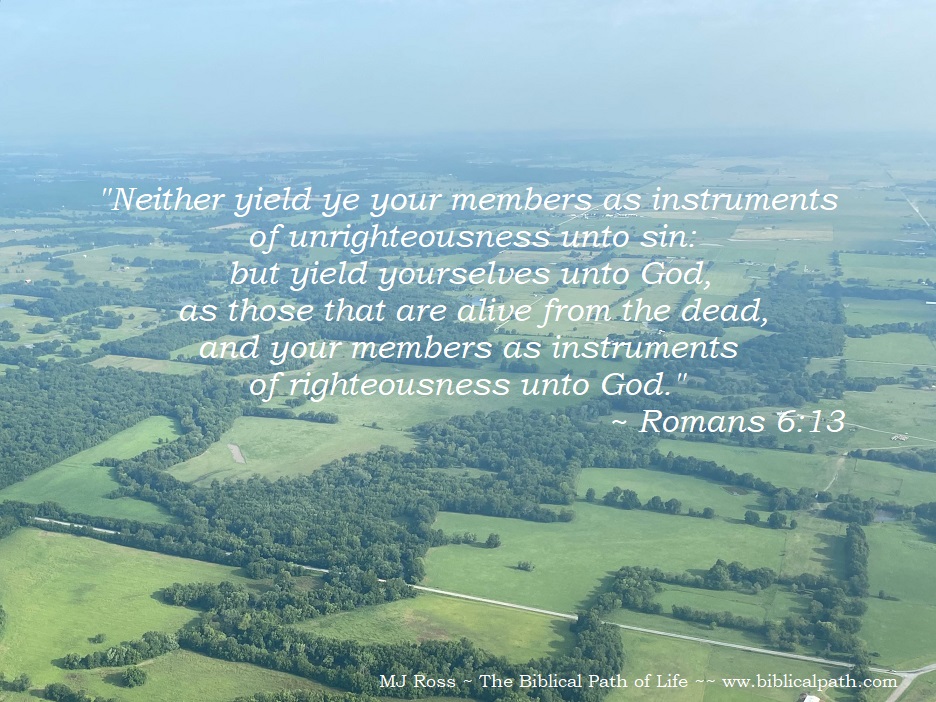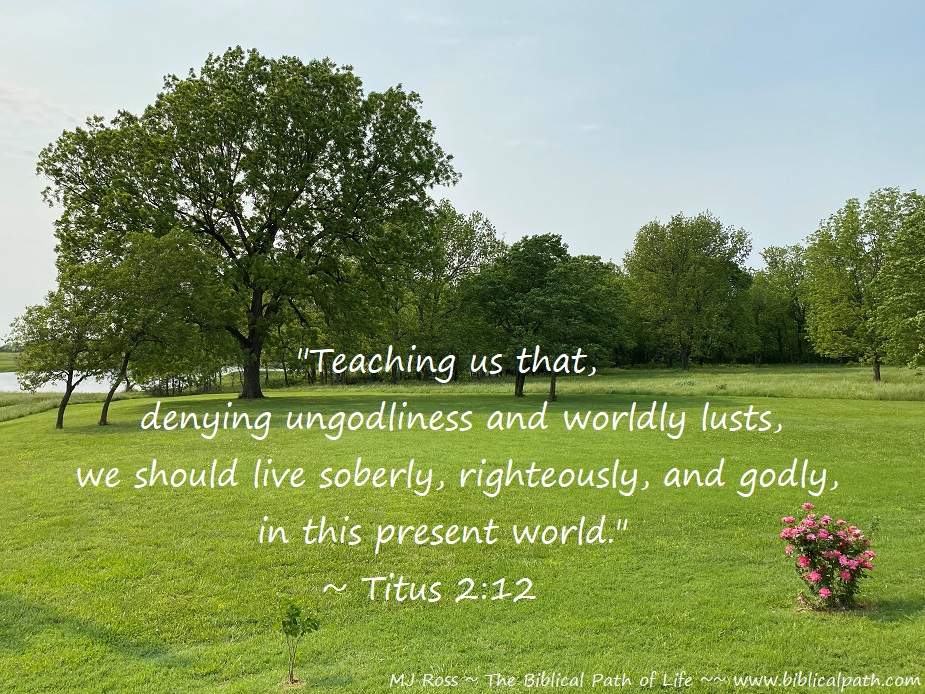
“Neither yield ye your members as instruments of unrighteousness unto sin: but yield yourselves unto God, as those that are alive from the dead, and your members as instruments of righteousness unto God.”
Romans 6:13
Many people have recognized the sin in their lives, acknowledging the need of a Saviour, and then taken the step of salvation found only in Jesus. That one has then been “born again”, becoming a new creature in Christ. “Therefore if any man be in Christ, he is a new creature: old things are passed away; behold, all things are become new” (2 Corinthians 5:17). This is the beginning of a new life found only in Christ.
However, so many Christians never make any progression from that stage of this new life. They have become a Christian, but that is pretty much it. They have taken no steps to grow, becoming that new creation where the old things pass away and all things become new. This is a very sad thing. Understand a picture of this. No one wants their newborn baby to remain a baby forever but to grow each and every day, becoming a child and eventually an amazing adult. God wants each one who becomes a Christian to grow each and every day, becoming a mature Christian. It takes a decision on the part of the Christian as to whether they are willing to grow in Christ or not. There are many pictures of this throughout the Old Testament. A very vivid picture of this is when Moses led the people to the brink of the Promised Land (see Numbers 13).
Moses sent twelve spies into the land to bring back a report. Ten of the men brought back a report of fear, declaring they looked like grasshoppers in the sight of the people, for there were giants in the land. “32. And they brought up an evil report of the land which they had searched unto the children of Israel, saying, The land, through which we have gone to search it, is a land that eateth up the inhabitants thereof; and all the people that we saw in it are men of a great stature. 33. And there we saw the giants, the sons of Anak, which come of the giants: and we were in our own sight as grasshoppers, and so we were in their sight” (Numbers 13:32-33). However, two men brought back a good report. “And Caleb stilled the people before Moses, and said, Let us go up at once, and possess it; for we are well able to overcome it” (Numbers 13:30). Caleb and Joshua declared that God would bring them into the land. “7. And they spake unto all the company of the children of Israel, saying, The land, which we passed through to search it, is an exceeding good land. 8. If the LORD delight in us, then he will bring us into this land, and give it us; a land which floweth with milk and honey” (Numbers 14:7-8). They went on to remind the people that God was with them; “fear them not” (see Numbers 14:9). Most remember that the people listened to the ten who said “no” instead of the two who believed God.
Many people call this the “Kadesh-barnea” moment in the life of Israel. “Likewise when the LORD sent you from Kadeshbarnea, saying, Go up and possess the land which I have given you; then ye rebelled against the commandment of the LORD your God, and ye believed him not, nor hearkened to his voice” (Deuteronomy 9:23). Because they refused to obey God, entering into the Promised Land, all over the age of twenty, except for Joshua and Caleb, died in the land in which they chose to remain. God allowed the children to grow up and enter the Promised Land. This people refused to grow in their faith and walk with God.
When one becomes a Christian, becoming that new creature where old things pass away, it takes a definite decision to move forward. It is at that point of decision that one becomes more than a new creation, for all things become new (see 2 Corinthians 5:17). A Christian is to begin a new life, putting away the old “conversation” (means lifestyle) which is corrupt. “22. That ye put off concerning the former conversation the old man, which is corrupt according to the deceitful lusts; 23. And be renewed in the spirit of your mind; 24. And that ye put on the new man, which after God is created in righteousness and true holiness” (Ephesians 4:22-24). One has put off the old life and then be “renewed in the spirit of your mind”.
With this new life, putting off the old and being renewed in the mind, one must remember that they are now dead to sin and alive unto God. “11. Likewise reckon ye also yourselves to be dead indeed unto sin, but alive unto God through Jesus Christ our Lord. 12. Let not sin therefore reign in your mortal body, that ye should obey it in the lusts thereof. 13. Neither yield ye your members as instruments of unrighteousness unto sin: but yield yourselves unto God, as those that are alive from the dead, and your members as instruments of righteousness unto God” (Romans 6:11-13). With this mindset, understanding that we are dead to sin and alive unto God, the decision to change the direction of one’s life occurs. Each person’s “Kadesh-barnea” moment: where one makes the decision to yield to God and His will, denying sin and yielding oneself unto God as members of righteousness.
Have you come to a “Kadesh-barnea” moment where you have decided to fully follow after God and His plan for your life?
